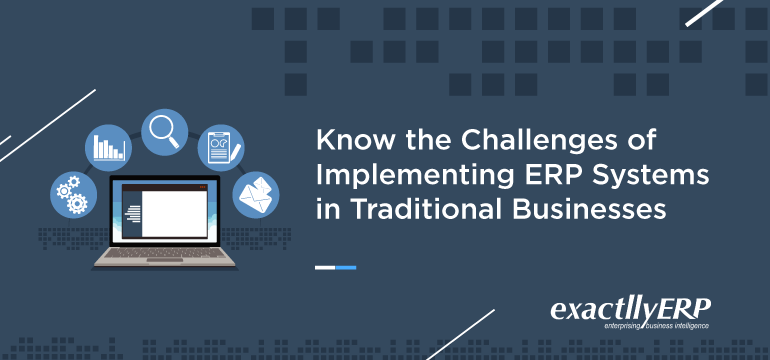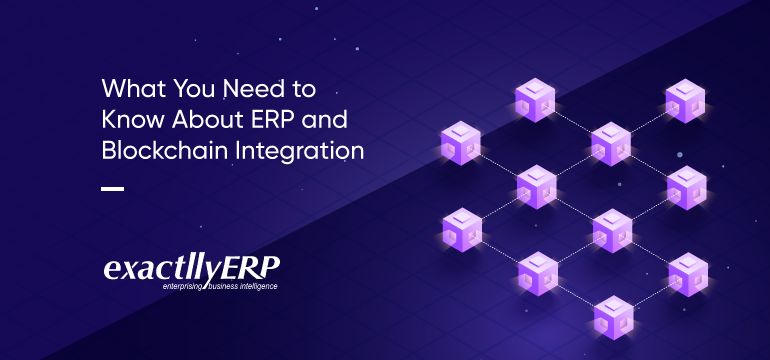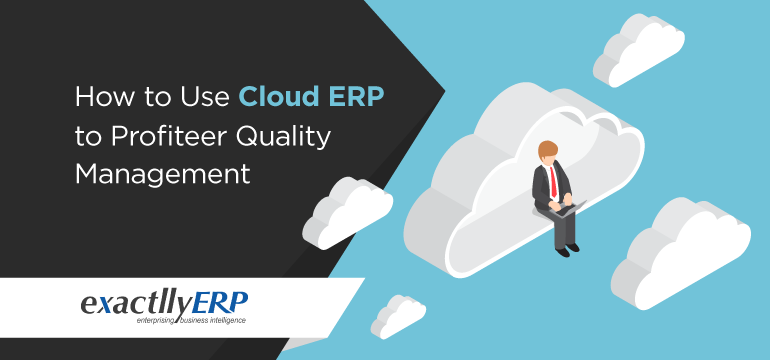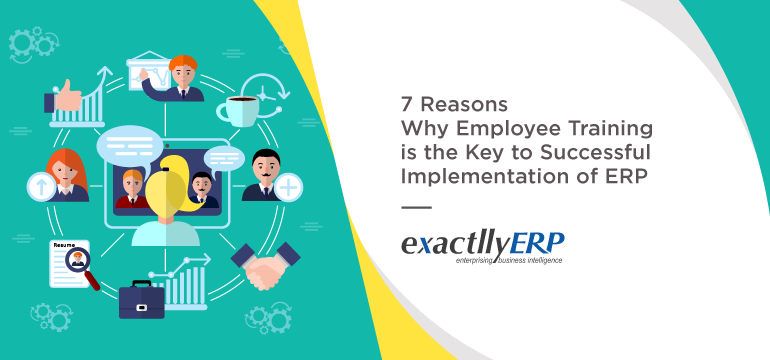Back Up Crisis Scenarios with ERP Implementation Plan
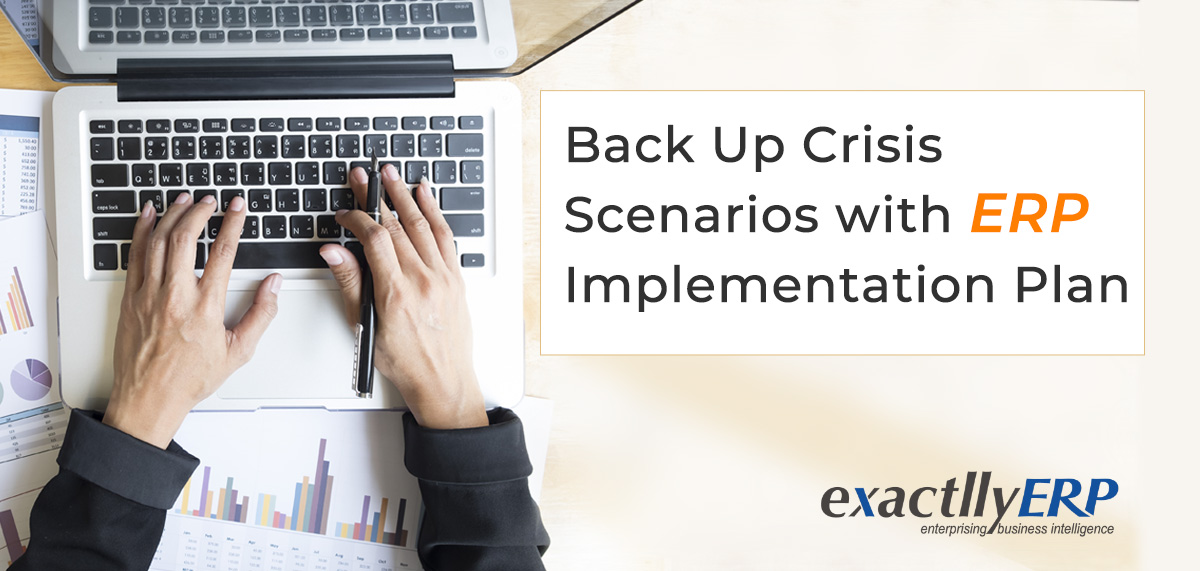
There has been a lot of destruction in the entire world, especially in the business sphere, after the outbreak of the covid-19. This is making several organizations concerned about their ERP software implementation project. While some are continuing with their ERP implementation projects, you are holding them and deciding to pass them. Also, many organizations are highly reluctant in continuing with complicated and pricey ERP implementation. This is mainly because of the unsure future that the world is in. But few organizations are playing it smart by taking it as an opportune time for transitioning from the conventional ERP system implementation to the cloud. A robust ERP implementation plan and ERP implementation strategy with or without the pandemic is a requirement that every organization needs to fulfil. This will ensure that every business process is carried out with ease. With successful ERP implementation, organizations can scale easily.
What does the Present Scenario of ERP Implementation Plan Display?
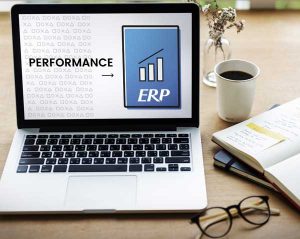
While contemplating working on a particular ERP implementation plan, it is necessary to learn about the present scenario of enterprise resource planning implementation projects. Exactlly which is one of the most reputed vendors emphasizes project-based ERP software for four industry sectors. These are higher education, public sector, professional services and not-for-profit sectors. The best part about this vendor is that it’s software solutions undergo deployment in the cloud. However, there also are systems that can be implemented on-premises. These are highly suitable for medium to small-sized organizations that are people-centric and the ones working on boosting their sales orders. An organization consisting of 600 to 11,000 employees can highly benefit from these software systems. Sectors like ERP in the construction industry and ERP in the retail industry are also moving ahead and making the shift to the cloud. Taking care of the total ERP implementation life cycle is the duty of the vendor an organization is associating with.
What are the Contemplations of ERP Implementation Projects?
-
Contemporary ERP Implementation and the Budget:
There has been a lot going on right now in the sphere of ERP system implementation plans and projects. Here the world is largely witnessing the survival of the fittest phenomenon. But few smarter organizations realize that only a sound ERP implementation strategy has the capacity of bringing them out of the present environment. The order of the new normal is getting accustomed by several organizations while others are looking forward to understanding the processes and systems they will require to adapt to the new normal. When they adapt to ERP implementation seamlessly, they can thrive easily in all their ERP projects.
-
Driving the Cloud ERP System advancement:
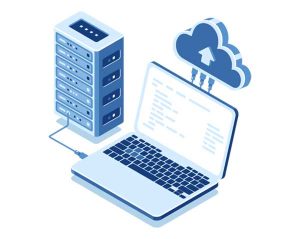
Many people from the current business world perceive the shift to the cloud as something happening in a rush. But this is not the case. Every big and small organization is indeed thinking about cloud transformation, and also it is one of the inflexion scenes that will be driving that forward. It is something exclusive that is taking place in the business world. Almost every organization is undergoing a huge amount of evaluation as they look again at the ERP software implementation projects they are currently working on. Everyone is working on the brief pause and taking a breath, and now they are contemplating how they can thrive and advance in the future.
-
Is there any need to stop Projects for now?
This is a very important question in the present time. This is mainly because everything is not ok right now, and many differences can be discovered in numerous industries. The sector that might be hesitating the most is most probably the higher education sector. This is because they are unsure of what the future will look like. They also don’t know when they will be able to witness the actual revenue. Also, numerous public sector companies are struggling with the transformations that will be taking place in the realm of ERP implementation plans. Many organizations like these do not offer laptops and are not arranged properly for conducting remote work. They do not even offer fundamental things such as mobile phones. It is true that some brief pause was there in the beginning but not in the past few weeks; the business world and the organizations are taking more interest in this.
Impact on ERP Implementation Work after the crisis:
Most of the sought after and well known ERP software implementation vendors carry out several professional services themselves. However, every ERP partner is also equipped with a bigger partner ecosystem. As per their statements, they have not experienced the incoming of any partners to them while under stress. There can be a lot of differences seen in the way they are conducting their ongoing businesses. These kinds of implementation partners usually send teams onsite so that they can work on several other projects. However, presently the focus surrounds project governance and how things can be done differently online. Now is the time to ensure that they cope with the tempo and the beat.
It is a time when organizations need to reshape the correct ways of engaging in projects. There will always be a requisite for the team to reach onsite, but the number will be less. Before the pandemic, companies felt the need to be onsite with the clients, but presently, both the vendor and the customer realised that the model and business case in today’s time are meant for remote working. Having said that, of course, there will be crucial moments in times and projects when everyone’s participation in person will be a necessity. Still, it is also the fact that most of the processes will be carried out remotely.
Moving Beyond the Current Crisis:
If we take a look at the previous economic downturns, we will be able to witness an uptick in better technology adoption subsequently. For every sector in an organization, it is a learning moment. They are realizing the importance of a perfect ERP implementation plan. It also shows that making the shift to the cloud when going for ERP implementation is something that needs to take place now. A huge amount of pent-up demand is there, and it will be quite interesting to watch how everything will be planned out in the better and new normal with ERP system implementation. When it comes to ERP software implementation in the cloud, it is the best decision any organization can ever make, especially in the context of the current era. If you are unsure about which ERP implementation strategy to work on, you can always get in touch with industry experts like exactllyERP. With the experts, ensuring a successful ERP implementation includes no hassles. Amalgamating advanced technologies and tools and understanding the requirements of each business, the experts craft the best ERP implementation plan in Kolkata. By moving to the cloud, ERP system implementation can help organizations scale like never before. To know more about the best ERP software in Kolkata, there is a detailed Free Demo uploaded on the website. Contact Us today.
FAQ:
(1) What is an ERP Implementation?ERP implementation process includes software installation, shifting the financial data to the newly deployed system and configuring the processes and users and training the workforce for seamless software utilization. (2) How do you create an ERP Implementation Project?Creating an ERP implementation project incorporates steps like amalgamating a project team, crafting an implementation change management plan, predicting the ERP implementation expenditure, starting the data migration and a lot more. (3) What is an ERP Project plan?ERP project plan includes implementing solutions for supporting an organization in all the angles of the business operations by centralizing data via automation. (4) What are the ERP Implementation Methods?The three most important ERP implementation methods are phased, parallel and the big bang. Every approach carries its inherent demerits and merits. (5) What are the major applications of ERP?The major applications of ERP are functional consulting, migration, program management, upgrade, customizations, technical consulting, interface programming, etc. (6) What is an ERP Implementation Plan?An ERP implementation plan incorporates steps like predicting implementation expenditure, fixing a budget, arranging an ERP implementation schedule, data migration to the new system, training the ERP user base and a lot more. (7) How do you plan an ERP System?Planning the deployment of an ERP system starts with steps like planning and discovery, design, development, testing, deployment, updates and supports and a lot more. (8) What are the major steps in a typical ERP Implementation?The major steps in a usual ERP implementation are identifying the problem, smarter scope evaluation, and data migration, customized service, testing and going live. (9) What is a Successful ERP Implementation?With steps like executive support, workforce involvement, planning to optimize business procedures; you can ensure a successful ERP implementation. (10) What are the steps of System Implementation?The steps of system implementation are planning ahead, process design, solution design, customization and configuration, integration, reporting, training and testing. (11) What are the four common ERP Implementation Strategies?The four common ERP implementation strategies are the big bang, phased rollout, parallel adoption and hybrid. (12) What is usually the critical path of ERP Implementation?Organizations need to develop a strategic and logical reason for implementing an ERP system. When the exact reasons are not set, then the ERP software will not be able to meet the expectations of the management. It will lead to a failure to execute the system. (13) How can you increase the chance of a successful ERP Implementation?Picking the correct partner for the task, selecting the correct solution for the situation, planning for the future and buying-in staff are the best ways of enhancing the chances of a successful ERP implementation. (14) What are the change management strategies for an ERP project?A few of the change management strategies for an ERP project are mobilizing and aligning leaders, identifying and managing people prospects and risks, stakeholder communications, crafting the future organization and enabling the workforce. |

